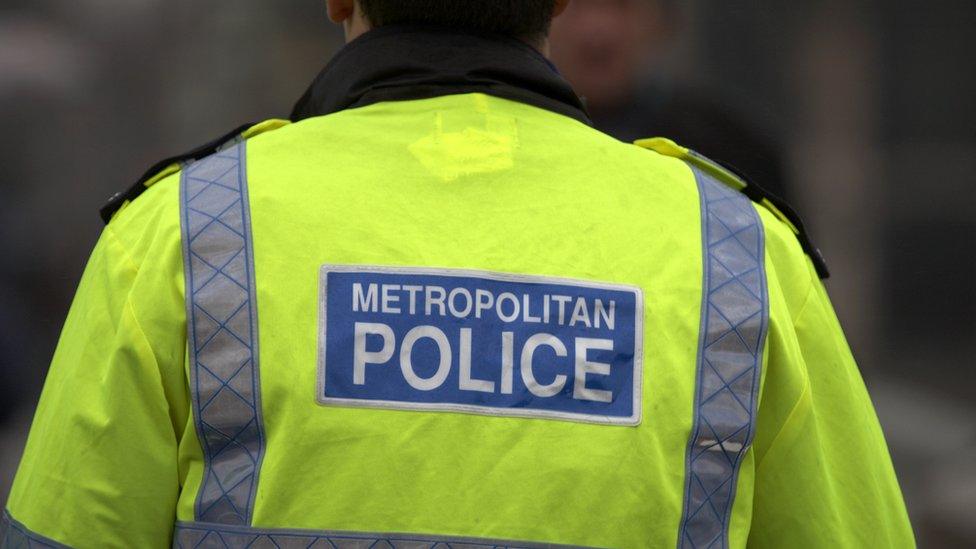Liz Truss: London streets aren't safe enough
- Published
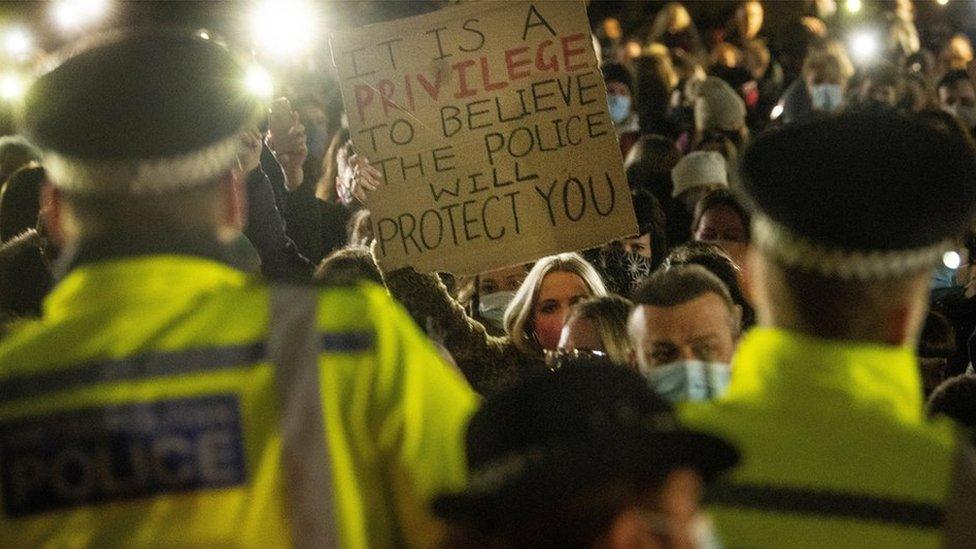
The murder of Sarah Everard, who was abducted as she walked home, sparked anger at the Metropolitan Police
The prime minister says London's streets aren't "safe enough", and wants its mayor to do more to tackle crime.
Speaking to LBC, external, Liz Truss said policing in the capital "isn't good enough at the moment".
It comes as the Metropolitan Police is undergoing an advanced stage of monitoring following several scandals.
A spokesperson for London Mayor Sadiq Khan said the capital had bucked "the national trend of rising violence which the government has presided over".
Asked whether she would feel safe walking home at night in London with her two teenage daughters, Ms Truss said: "We need to do more to make our streets safer, and one of the important points about generating the economic growth is it will help us afford more police officers.
"It will help us make sure we are properly able to protect our streets.
"But if you're asking me if the streets in London are safe enough, no they're not."
A spokesperson for the Mr Khan said: "Violence in the capital has been falling since 2016, with knife crime, gun crime, burglary and teenage homicides all falling - bucking the national trend of rising violence which the government has presided over.
"The mayor has directly funded 1,300 more police officers on our streets to suppress violence, and invested record amounts in the Met to help elevate police officer numbers to their highest levels in history."
They added Mr Khan "has also helped to appoint a new reforming commissioner who is rebuilding trust in the police and working to drive through the step change in culture and performance that's urgently needed, and which Londoners deserve".

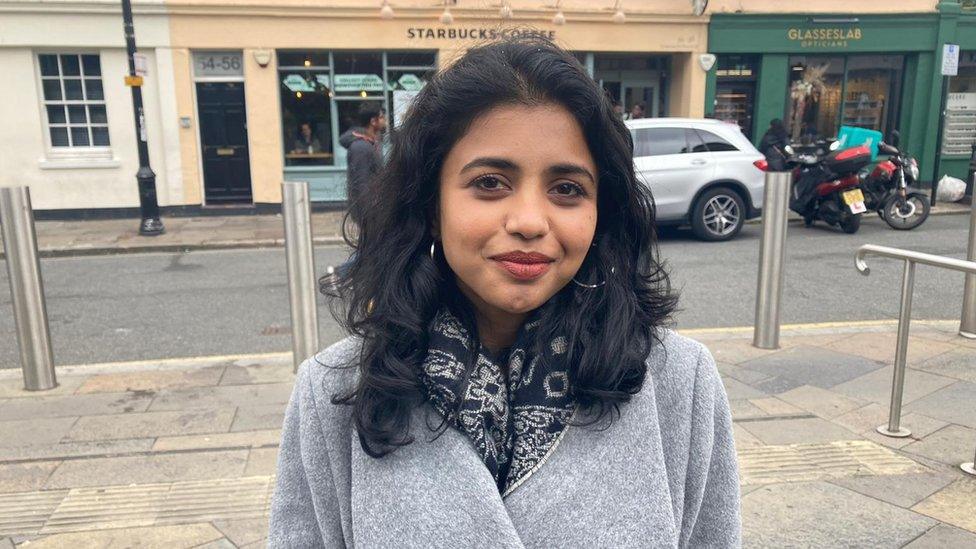
Nandini says she doesn't always feel safe at night in London
'I've been catcalled'
Nandini Sreekumar, a student who lives in east London, said there were areas of the capital where she doesn't feel safe and she "partly agrees" with Ms Truss.
"I've been catcalled, I've been followed, and my friends have come across a couple of snatchings," she said.
"Towards night-time it does tend to get a little unsafe; but the government and authorities are being extra responsible. There are cameras everywhere, security everywhere."
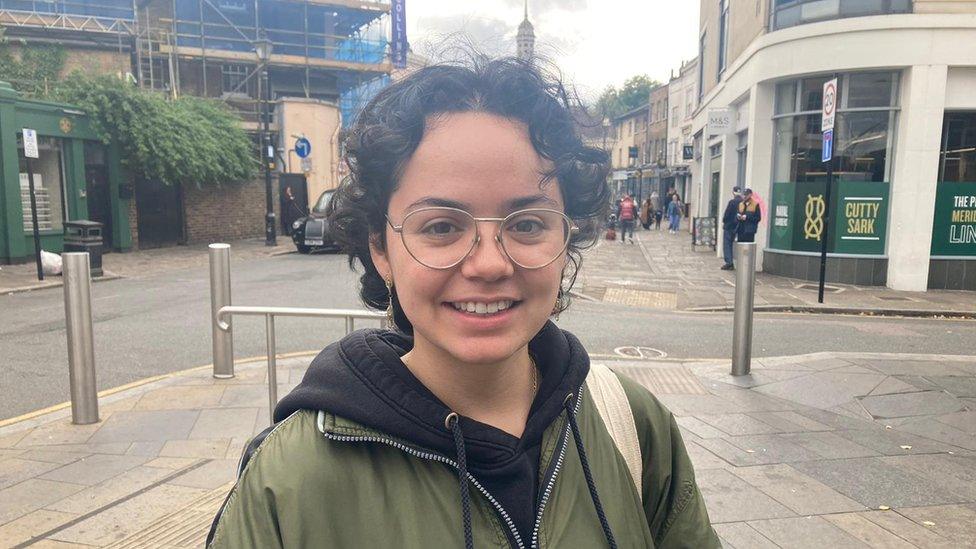
Alondra says she'd like to see more police in the community supporting people
'They need to listen'
Alondra Galban, a postgraduate student from south London, said she hoped the problem of crime in London would improve in the future.
"I still see issues around. My friend just got her phone stolen two weeks ago so has been trying to replace that.
"The police need to listen and be out there whenever things do get called in; at night especially," she said.
"For women it's a little harder to walk in the night."

The prime minister's comments come at a challenging time for the Met, which has been hit by a number of scandals including the murder of Sarah Everard by a police officer, the strip-search of Child Q, and the failure to investigate properly the serial killer Stephen Port.
Dame Cressida Dick stood down as Met Police Commissioner in February after Mr Khan said he had lost confidence in her leadership, and in June the force was put in a form of special measures known as advanced monitoring. Sir Mark Rowley was sworn in as commissioner in September.
Safety - in numbers
Metropolitan Police data shows the force recorded 243,847 offences considered "violence against the person", external in the year ending August 2022. That is up 7% from 227,017 compared to the year before
However, Home Office data shows that London has a lower rate of recorded violence against the person offences than England and Wales as a whole
For the year ending March 2022, London had a rate of 27 of such crimes per 1,000 people, compared to 35.2 per 1,000 people across England and Wales
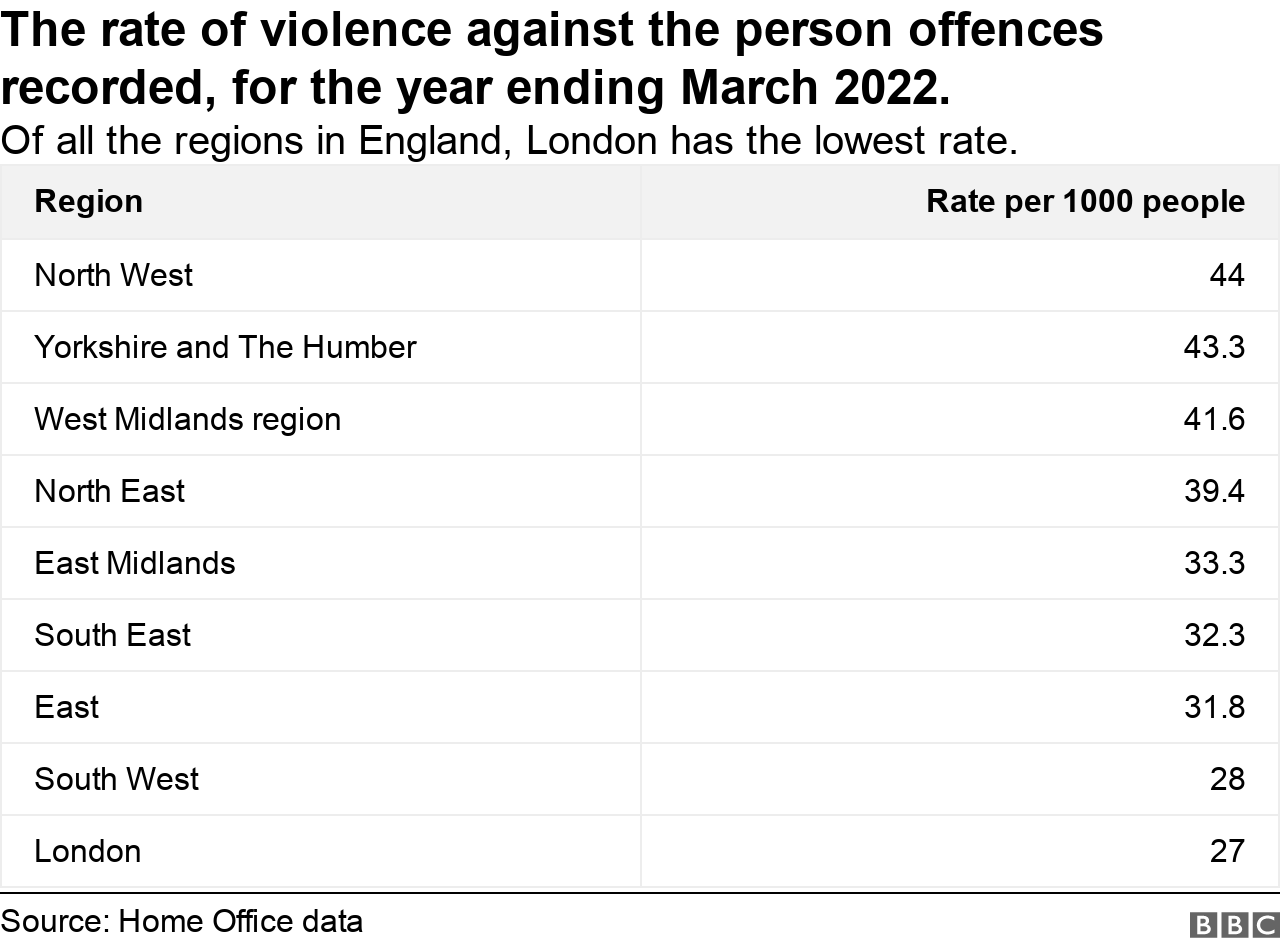
Speaking to the BBC last week, Sir Mark said he wanted to be able to show the public that progress had been made in key areas within 100 days, and to bring the force out special measures within 12 to 18 months.
Last month a report from His Majesty's Inspectorate of Constabulary and Fire & Rescue Services raised "serious concerns" over the Met's performance, and said the force must make "urgent improvements".
- Published12 February 2022
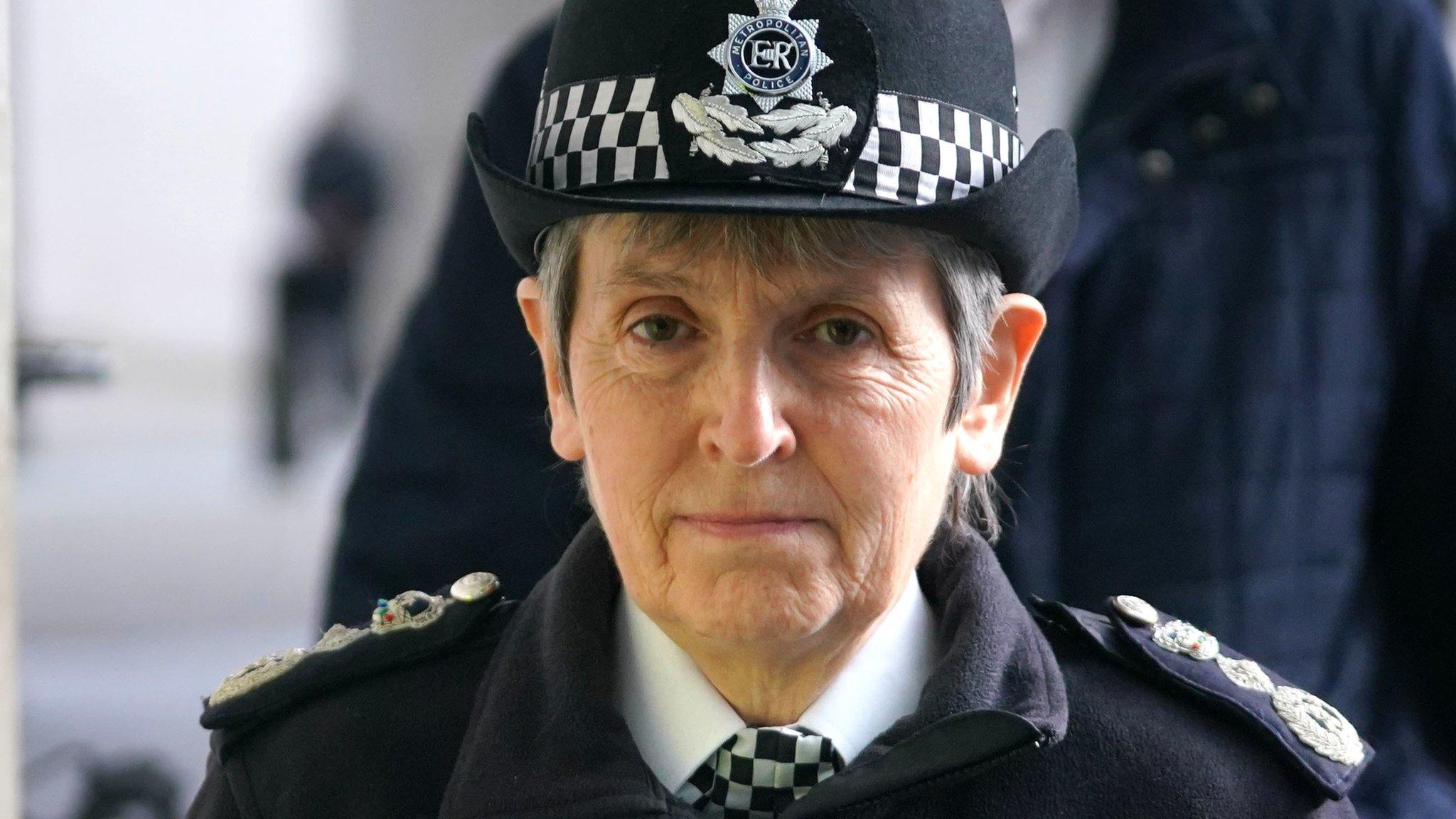
- Published28 June 2022

- Published22 September 2022
